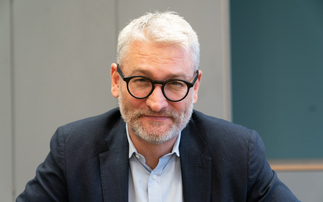
Due to the challenge of researching and reporting on companies within an impact investing capacity, impact strategies have traditionally been smaller in scale - however, this trend is changing.
"The universe of specific use of proceeds bonds has changed since launching the first social bond fund in the UK over a decade ago. When we first ventured into impact investing to address social inequality and deprivation, the social bond universe was nearly non-existent," says Tammie Tang, the portfolio manager leading Columbia Threadneedle Investments.
Today, the market has grown substantially, and as of June 2023, Columbia Threadneedle manages more than €1bn within its social bond strategies (1).
Key to Columbia Threadneedle's success has been the rising awareness around social inequality and climate issues, both of which are no longer abstract concepts.
Tang says: "Now people understand, thanks to better literature and access to academic work, the problem of social inequality. We do not accept that unequal societies are likely to give us happy, satisfied people with good well-being, stable community, and politics. By targeting better outcomes for people in need, we seek to benefit and support not just them but all of society."
Equally, there is also a growing understanding that impact investment does not have to involve the sacrifice of returns. According to a survey from the Global Impact Investment Network (GIIN), 79% of investors saw their financial return expectations met or exceeded, with it rising to 88% regarding their impact expectations (2).
A pivotal shift in investing over the past 10 years has been the transition from focusing solely on exclusionary practices to a more holistic approach. Exclusionary-based investing focuses on avoiding harm with investments, typically screening out companies with unfavourable ESG characteristics, rather than selecting companies for their positive impact.
Andrew Dewar, portfolio manager within the team, explains that an exclusionary approach is no longer enough for many investors.
He says: "The complexity and the sophistication of investors over the last 10 years has moved massively. Exclusionary-based investing no longer cuts the mustard and that's why inclusionary-based investing is so key in how we approach things."
To read the full Spotlight on Social Bonds, complete your details in the form below.
Sources.
(1) Columbia Threadneedle Investments, 30 June 2023
(2) thegiin.org







